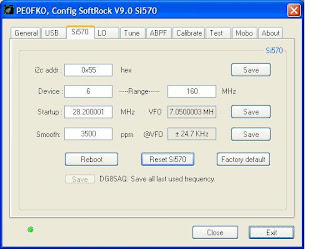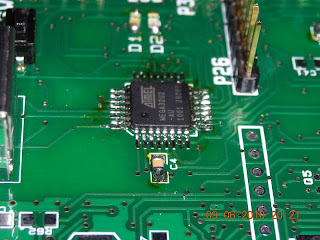
I just build a new SR V6.3 from scratch and added the headers for RX and TX IQ and beefed up the power.
I didn't have a 1N5422 but I have a 1N5408 instead and after a quick test then extended the diode PCB pads a little so not as 'tidy' as the little DO41 drop in replacement.

I did a scratch rebuild as the previous build had a LDVS version not a CMOS Si570 in place as a sample chip and could go to >260MHz and as this is for SDR-Radio development I will keep the build to 'vanilla' only.
I noted the MOBO kit seems to have plenty of jumper connectors so will make some up.
I will use a length of RG174 or similar for the RF and I will use some shielded audio cables for the RX & TX IQ.












































